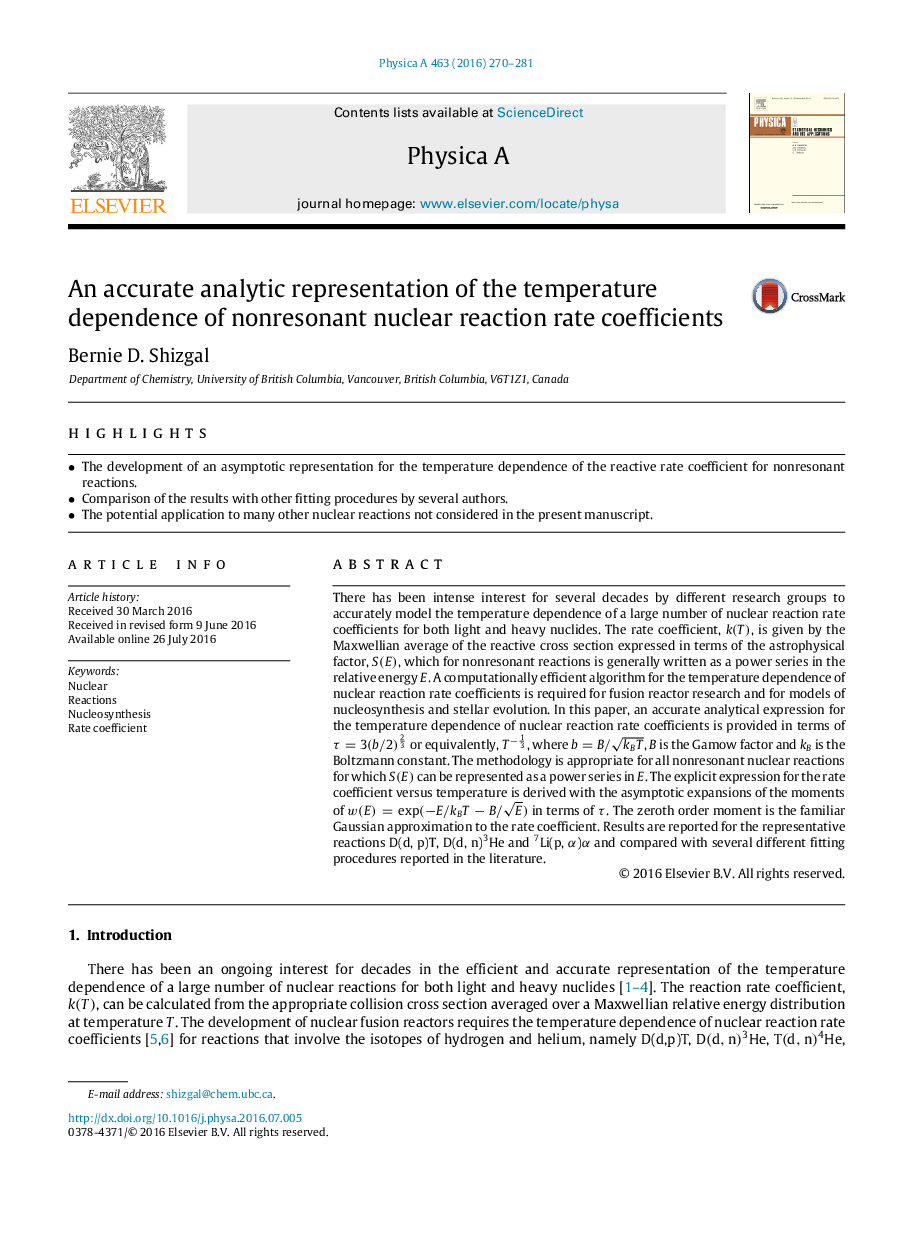| Article ID | Journal | Published Year | Pages | File Type |
|---|---|---|---|---|
| 973963 | Physica A: Statistical Mechanics and its Applications | 2016 | 12 Pages |
•The development of an asymptotic representation for the temperature dependence of the reactive rate coefficient for nonresonant reactions.•Comparison of the results with other fitting procedures by several authors.•The potential application to many other nuclear reactions not considered in the present manuscript.
There has been intense interest for several decades by different research groups to accurately model the temperature dependence of a large number of nuclear reaction rate coefficients for both light and heavy nuclides. The rate coefficient, k(T)k(T), is given by the Maxwellian average of the reactive cross section expressed in terms of the astrophysical factor, S(E)S(E), which for nonresonant reactions is generally written as a power series in the relative energy EE. A computationally efficient algorithm for the temperature dependence of nuclear reaction rate coefficients is required for fusion reactor research and for models of nucleosynthesis and stellar evolution. In this paper, an accurate analytical expression for the temperature dependence of nuclear reaction rate coefficients is provided in terms of τ=3(b/2)23 or equivalently, T−13, where b=B/kBT, BB is the Gamow factor and kBkB is the Boltzmann constant. The methodology is appropriate for all nonresonant nuclear reactions for which S(E)S(E) can be represented as a power series in EE. The explicit expression for the rate coefficient versus temperature is derived with the asymptotic expansions of the moments of w(E)=exp(−E/kBT−B/E) in terms of ττ. The zeroth order moment is the familiar Gaussian approximation to the rate coefficient. Results are reported for the representative reactions D(d, p)T, D(d, n)33He and 77Li(p, αα)αα and compared with several different fitting procedures reported in the literature.
